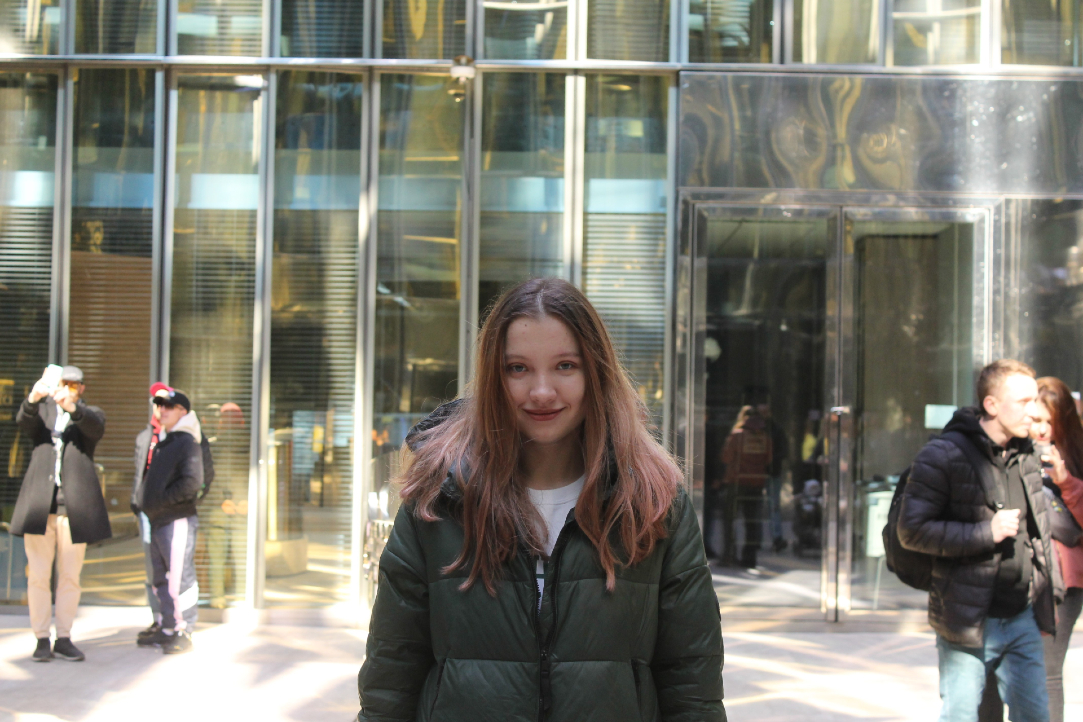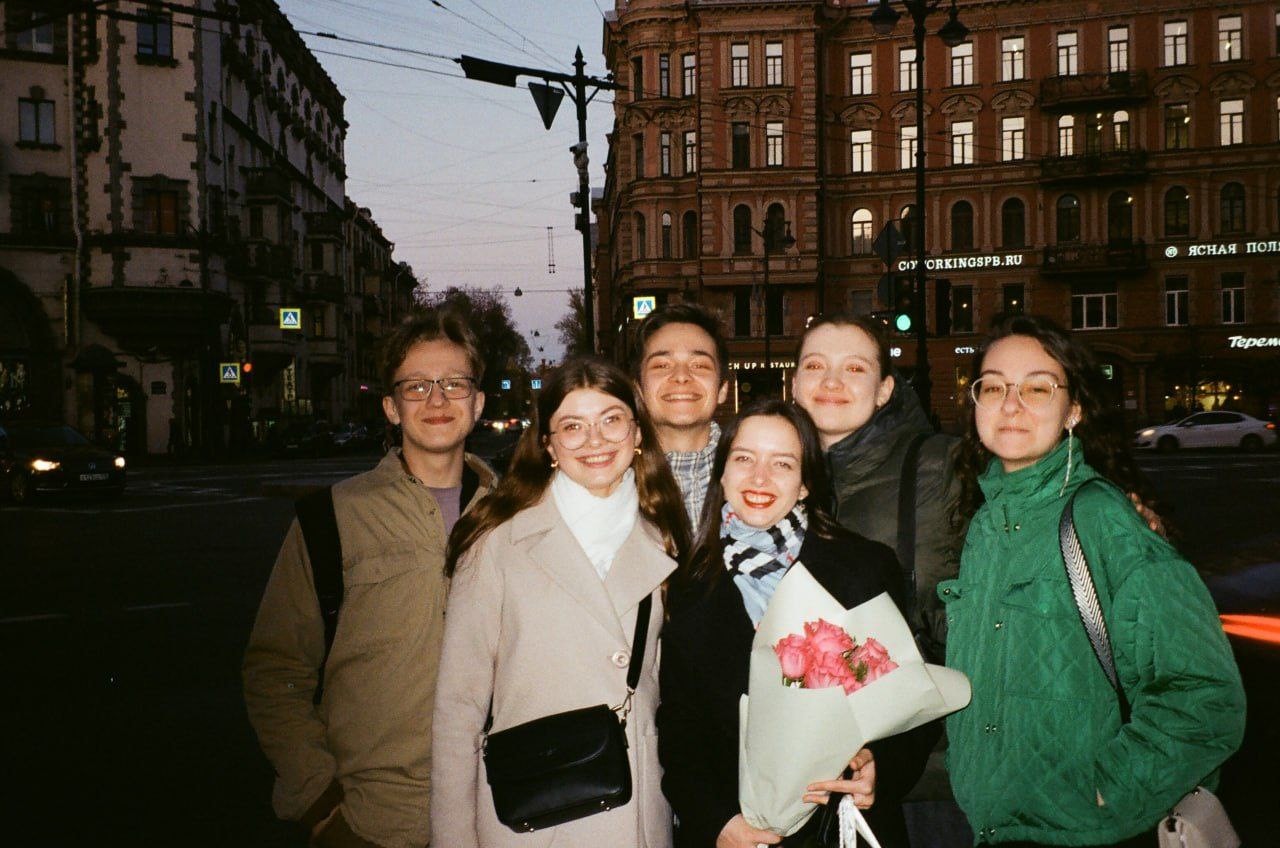‘I Really Wanted to Enrol at HSE University’
Since her school years in Kazakhstan, Darya Bashlayeva has dreamed about HSE University. Now, several years later, her dream has come true—she came to HSE University in St Petersburg under the exchange programme. She is currently studying the Chinese language, Asian literature and Political Science. Read on to learn more about Darya's story.

— Why did you decide to take part in the mobility programme? Was the selection process hard?
— I really wanted to enrol at HSE University. I applied for the first time when I was a second-year student. That would have been the first and second modules. But they told me that neither the Moscow nor St Petersburg campuses would accept me, as HSE University mostly offered economic programmes. Then I applied to another Russian university, but it wasn't my priority. However, I really wanted to go to HSE University, so I applied again. This time, HSE University-St Petersburg accepted me!
It wasn't hard to pass the selection process, but the only problem was that there were no scholarships for CIS countries. So it required self-funding. Those who go to Japan and other far-off countries can count on receiving scholarships, but CIS countries—Belarus, Kazakhstan and others—can go only with self-funding. My parents helped me a lot with this.
To be honest, I applied to HSE University when I graduated from school. Unfortunately, back then, the admission deadlines were approaching. I passed the entrance exam in Russian but I didn't have enough energy or resources to continue the admission process. This is why I submitted my documents to the university in my town in Kazakhstan. Only after some time did I realise that it was HSE University I wanted to study at. However, it was too late to change anything.
— What is your field of study at your home university and what are you studying here?
— My subject is 'Asian and African Studies', and my faculty in Kazakhstan is International Relations. At HSE, I have also chosen some courses from the Bachelor's programme 'Asian and African Studies' and some from the Bachelor's programme 'Political Science and World Politics'. Now, I'm studying the literature of East Asia, art history, the Middle East and Southeast Asia. In addition, I am studying Chinese with students of Political Science. I have studied Chinese before, but we didn't discuss such things as 'radicals' (elements of characters). In Kazakhstan, we have never discussed it in such detail. But HSE University gave me this necessary basis.
I have been interested in Asian and African studies since childhood, as my great-grandmother is Chinese. Her mother was Russian, and her father was Chinese. She is 90, and she is living in Kazakhstan. I really wanted to study the Chinese language and immerse myself in the culture even further. Besides, Kazakhstan borders China, which is also a very significant factor.
— What are your impressions of the university, the professors, and your courses? Do you like it here?
— I really like the professors. Whatever question you have, they will help and find an answer. If they cannot do it right away, they say: 'I'll send the information to your email.' They are always ready to support you and explain something, even if they need to stay after classes.
I can say the same about the professors who do not teach me. When my groupmates and I stay after our classes, the professors see their students from previous courses and start talking. I can easily join the conversation even if a professor is meeting me for the first time. The atmosphere is very friendly but there are still ethics, mutual respect, and 'student-professor' relations.

— You wanted to get to HSE University so badly, and now you are here. Does it live up to your expectations?
— Yes, of course. Everyone keeps telling me that I am just an exchange student, so I cannot fully assess what studying at HSE University means. But I can see that students of Asian and African Studies really work hard. They have a huge number of courses: a second Asian language and an additional European language. I even asked them: 'Do you have any free time at all?', to which they firmly answered: 'No, we don't.' So future experts in Asian and African Studies spend a lot of time studying.
All my expectations of HSE University were met. I tried hard to avoid expecting too much so that I wouldn't get upset, but that wasn't necessary. I imagined HSE to be a modern university with lots of talented people. I was afraid that no one would want to talk to me because I was not good enough. But everyone is great, and we immediately made a connection. There are a lot of wonderful people here: some write collections of poems, others write books. Everyone is extremely talented. Talking with them inspires and fascinates me.
— Are the educational processes at HSE University and in Kazakhstan different?
— They are really different. Take the module system. At first, I did not even understand what it was. Besides, Kazakh universities use a percentage assessment system from 0 to 100, but HSE University uses a ten-point one. In addition, in Kazakhstan you can get points for certain types of assignments, such as essays or presentations. At HSE University, when you come to class, the assessment of your work starts straight away.
— What do you think about St Petersburg?
— I am really impressed by the historical part of the city. Recently, there was a tour around the places connected to Fyodor Dostoevsky organised by the Centre for International Student Support for international students. We had a walk around the city and saw the places described in Crime and Punishment. Even when you simply roam about the city centre, you can admire the architecture and wonder how old this or that building is. This impresses me a lot.
Moreover, my friends and I like exploring the food side of the city. There are a lot of Chinese students, and as a result, St Petersburg has a lot of places offering pan-Asian cuisine. Sometimes, we try to talk to Chinese people—but often they want to speak only Russian and we want to practice our Chinese language skills.
— Did you learn anything new about Russia, its people, and its culture after your arrival here?
— Yes, for sure. Our mentalities are very different. Russian students are very straightforward. They will not shy away or make you find double meanings in their words. They will openly say: 'I don't like it' or 'I don't want to do it.' I am really impressed that people can express their opinion so directly.
I also liked the way people celebrate Maslenitsa. My friends from Vietnam and I went to a celebration on Yelagin Island. There were various games, and people were doing circle dances. It was something new for all of us. It is also interesting how Russians celebrate Easter. Of course, in Kazakhstan, we have this tradition as well: they sell Easter cakes, and people paint Easter eggs. But here, this festival is more significant and widely recognised.
— What advice do you have for those planning to participate in a mobility programme?
— I would like to advise them (and myself in the past) not to be afraid. Yes, there will be difficulties, but they shouldn't stop you. The students here are very sympathetic and they will always help you. I have never been turned down when I ask for help.
The most important thing is not to be afraid!

